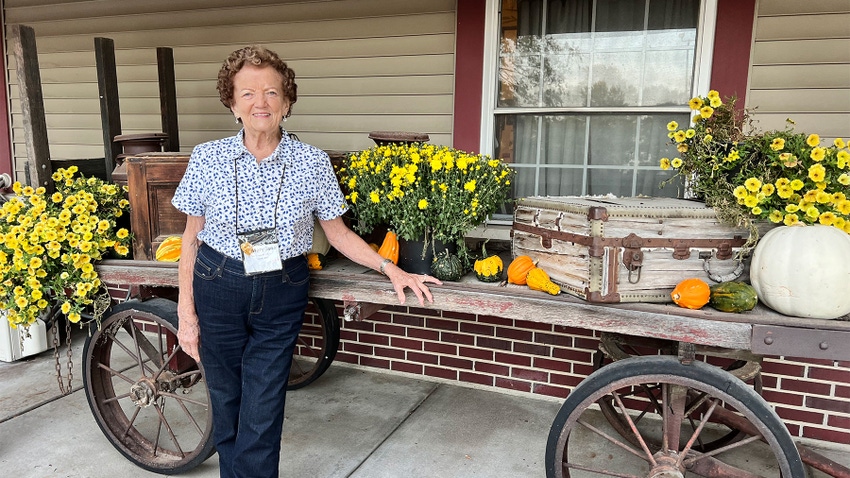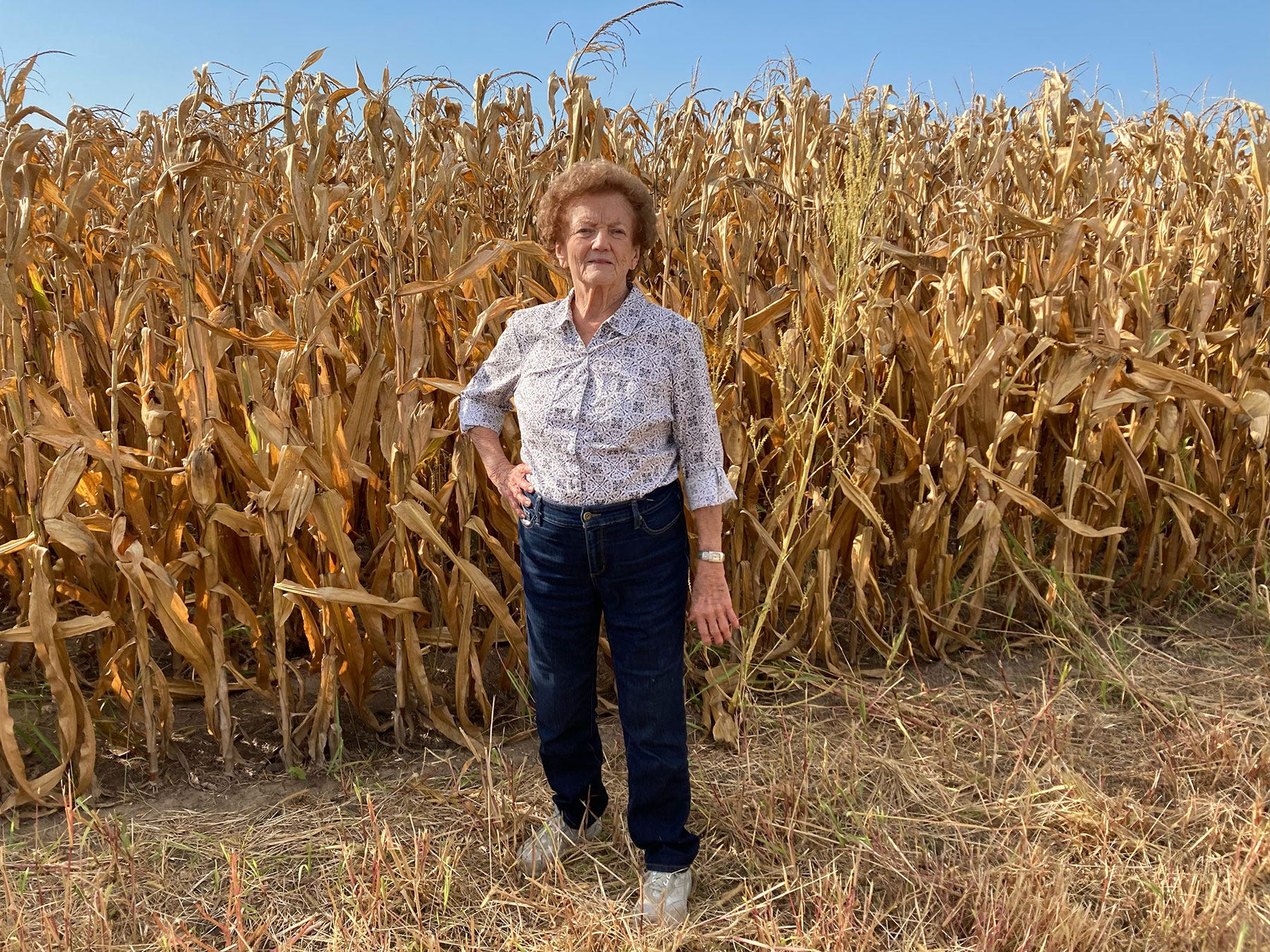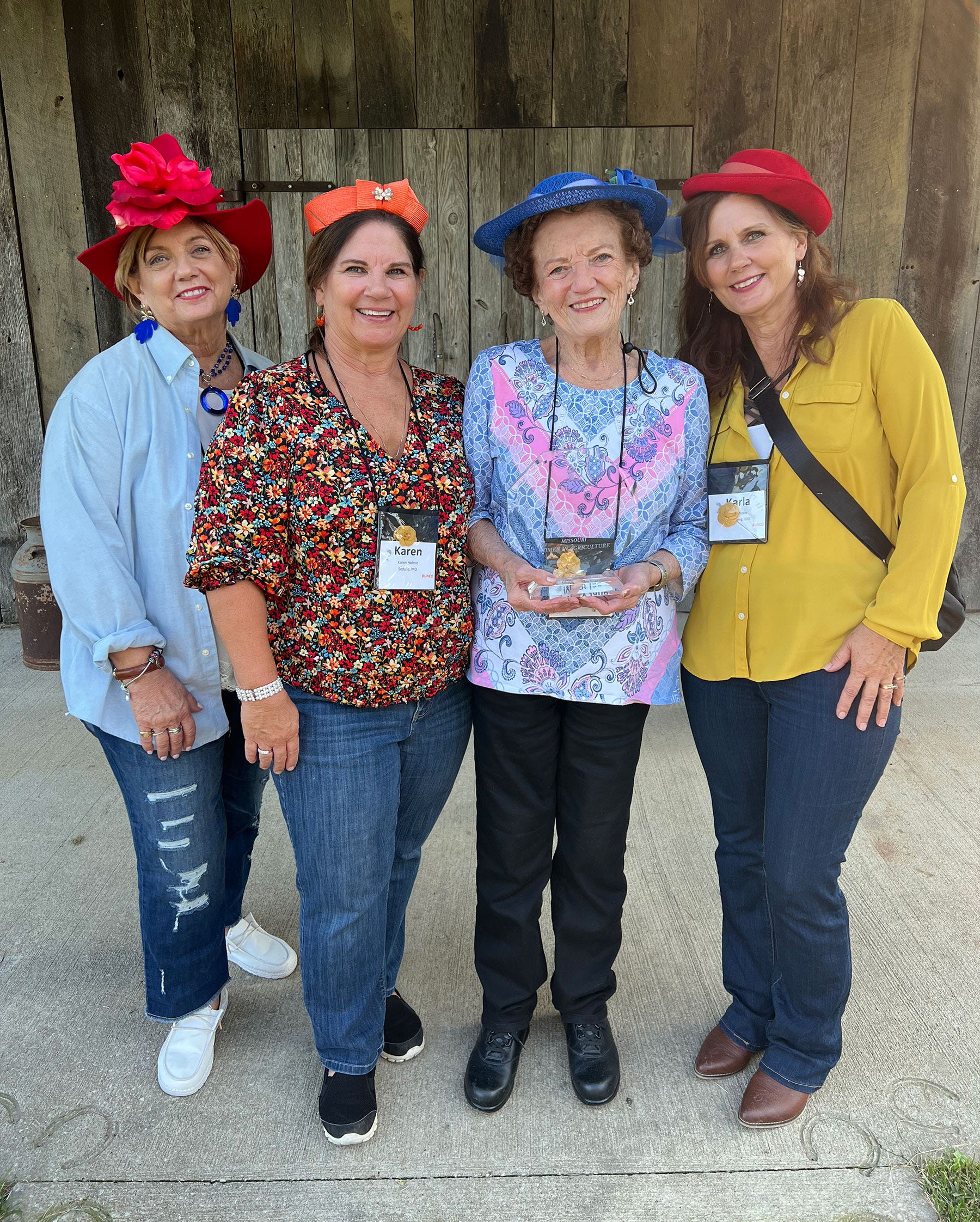
At a Glance
- Mary Jane Koechner named Women in Ag Lady Landowner of the Year.
- In the U.S., 36% of farmers are women; 19% are primary operators.
- Honesty, integrity and longevity are three key aspects of farm renters.
Mary Jane Koechner grew up on a farm with no running water or working electricity. It was a lifestyle that might have pushed even the strongest woman away from the agriculture industry, but in 86 years, she’s only spent one brief time living in the city. It was then she realized that no matter the obstacles, life was better on the farm.
As a young child, Koechner watched her mother and father slop hogs with buckets, work cattle in an open field and harvest crops with a threshing machine. “It was a hard way to farm,” Koechner recalls. “But they did it, and I learned a lot.”
Married right after graduating high school, her husband, Virgil, worked for Bell Telephone Co., and the couple moved to Kansas City, Mo. “I found out that was not the lifestyle for me,” Koechner says.
Koechner liked being in rural Missouri and working outdoors. In 1966, the couple purchased their first farm in Morgan County.
“There were a lot of trees and brush on it,” she recalls. “I went out on the tractor to pick up the brush the bulldozer cut down.” Little by little, she defied the norm for female farmers and instead transformed the farm into a row crop operation.
Today, Koechner is one of the roughly 53,000 women farm operators in the state of Missouri. Owning multiple farms across three counties, all of which operate on a cost-share basis with local farmers, earned her the title of Missouri Women in Agriculture Lady Landowner of the Year.
“Mary Jane is the 28th woman to receive this award,” says Nancy Kirby, retired Moniteau County Soil and Water District employee and Missouri Women in Agriculture committee member. “I’ve known her family all my life. They are a good bunch of people. Mary Jane is the hardest-working woman I’ve ever met.”
Kirby says the award is given to a female landowner who uses good management practices to sustain the land for the future of farming. Nominations are sent in by those who know the individual and reviewed by a selection committee.
“It is quite an honor to be nominated and selected,” Kirby adds. “As female farmers, we get together to celebrate that during our annual convention.”
The recognition surprised Koechner. “I’ve been going to the Women in Agriculture meetings at the state level for 12 years,” she says. “I’ve watched many women win this award. I was honored and humbled.”
Not an easy road for female farmers
In general, it’s been a long journey for women to even be recognized as farmers by the U.S. Census Bureau. It wasn’t until 2002 that farms could add up to three operators per farm, and finally by 2017, they were allowed four operators. At that time, the USDA National Agriculture Statistics Service reported a sharp uptick in women farmers.
“From the census data, 36% of all farmers are women,” says Colette DePhelps, University of Idaho Extension educator and Annie’s Project coordinator for the state. “And of that, 19% are primary farm operators. But over half of all farms in the United States have at least one female producer.”

STANDING TALL FOR AG: Neither age nor gender affect Mary Jane Koechner’s ability to manage cost-share row crop farm operations. She says the key is finding good renters who want to work hard and stay around for the long haul.
DePhelps studies how access to land and resources may affect women’s choices to farm. What she found was a significant gap in financial performance between male and female farmers. “If a woman makes $1 as a primary farm operator, a male makes $2.50.” She says most of it boils down to the type of enterprise women choose.
Female farm operations tend to use less capital in terms of land, machinery and labor, DePhelps explains. They opt for production of commodities that are less profitable, like small farm-to-market vegetable stands or honey.
Koechner defies that data by owning and building cost-share row crop operations in Missouri.
Building a row crop operation
The Moniteau County native was a female farmer when it was not even trending on social media.
Starting with her first farm, Koechner managed the land to increase productivity. She worked with USDA, Farm Service Agency, Department of Natural Resources, and Soil and Water Conservation District to renovate acres.
“We would make a plan to clean ditches on the farm or put in buffer strips,” she explains. “I was out there laying out terraces with the USDA. It was hard work, but something that I enjoyed.”
All of the improvements allowed for the growing of corn, soybeans and wheat. Koechner wanted to retain the land, so she had to find the right people willing to rent on a crop-share basis.
“We split the costs and expenses, the inputs and the outputs from seed purchases to grain bin drying,” she adds. “You have to trust them because everything is half theirs and half ours.”
Key attributes of cost-share renters included integrity, a solid work ethic and staying power. For those qualities, Koechner turned to the local community. “I’ve seen many families grow up in this community, and you can tell those who work hard and value the land,” she says.
But honesty goes both ways. Koechner is transparent with her renters. “We have to talk about what we can afford as prices go sky-high for inputs and how the drought hurts our yields,” she says.
They are not easy conversations, she adds, but they are needed.

FAMILY AFFAIR: Attending the Women in Agriculture state convention is a tradition for Mary Jane Koechner (center). She is surrounded by her daughters, Kim Spencer (from left), Karen Hohne and Karla Wood.
Preserving the farming way of life is important to Koechner. She and other farmers face an uphill battle as agricultural land in central Missouri is either all bought up or too pricey to attain.
Her only hope is to keep the current farms running for the next generation. The couple had six children over the course of 10 years, but sadly, one of her sons passed away 10 years ago. However, the remaining heirs plan to continue owning and managing the land.
Next generation carries on farm tradition
Frugal is how daughter Karla Wood describes her parents.
“Their lifestyle is one that everything does not have to be the newest. I think that’s what keeps them farming during down times,” Wood says. “They don’t trade in trucks very often, and they don’t spend money on material things. They are kind of like the Sam Walton story of farming.”
During difficult times, Koechner is quick to point to her faith. “We pray a lot, and we are faithful in tithing to our church,” she says. “It is important to keep that balance.”
With more women recognized by the Census for Agriculture as actively engaged in farming, Koechner says now is a great time for the next generation to make their own mark in agriculture. “It doesn’t matter if you are raising cattle or farming cropland, women can get out there and do it for themselves,” she says.
The girl who grew up outside of the small town of Tipton, butchering hogs alongside her parents in the 1940s, always knew that owning land in rural Missouri is better than living in the city.
Today, she looks at the road she paved back to the farm nearly 60 years ago and deems it a “blessed life,” one that will continue on for generations to come.
Read more about:
Women In AgricultureAbout the Author(s)
You May Also Like






